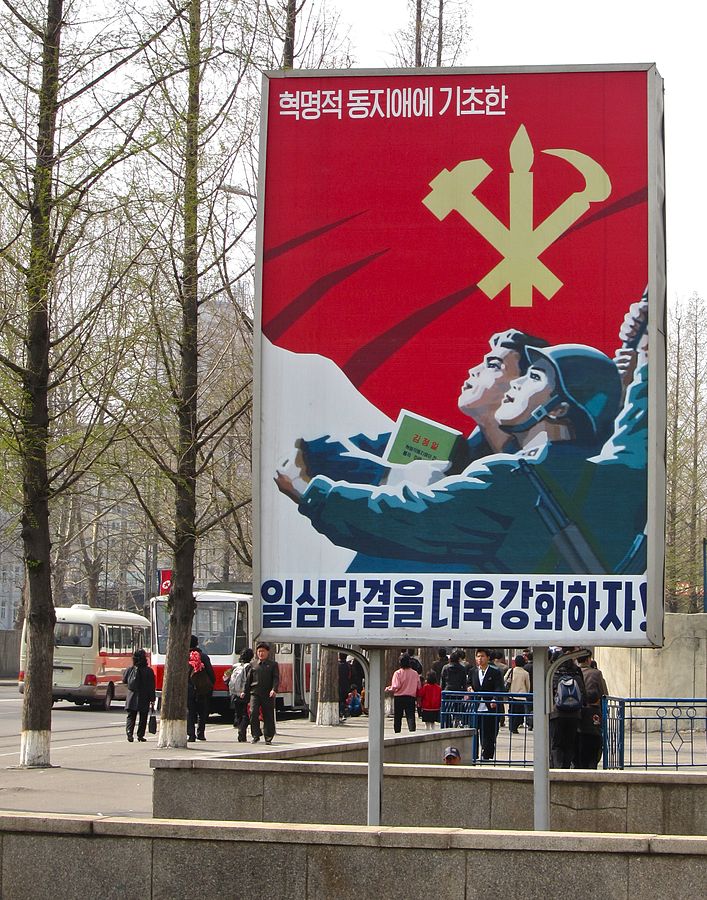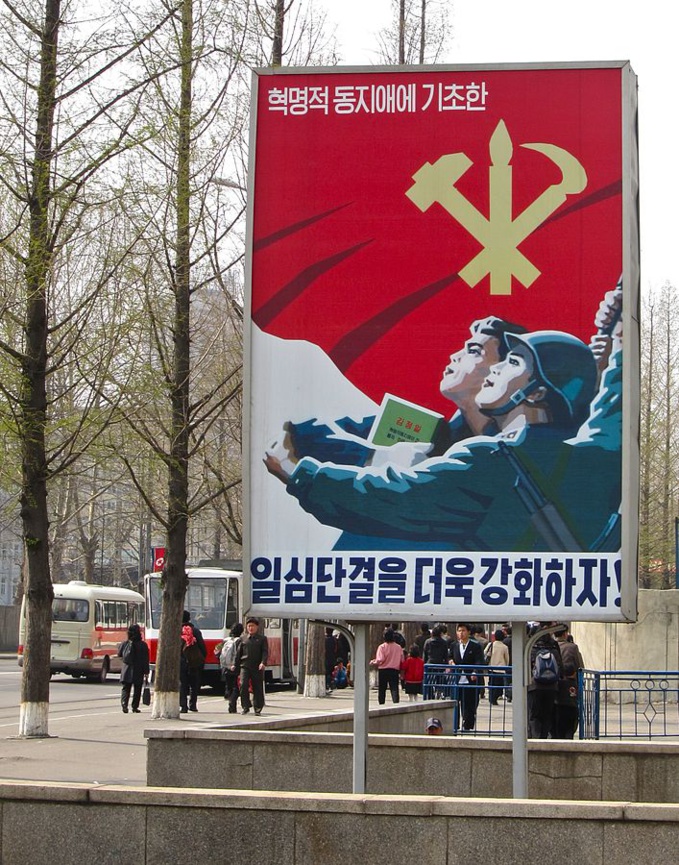The author notes that he conducted an analysis of economic impact of the peninsula’s unification on North and South Korea, as well as the rest of the world in the framework of three hypothetical scenarios. They include reforms and gradual rapprochement with North Korea, sudden collapse of the DPRK and immediate unification, as well as chaos and crisis in both North and South Korea. Needless to say, there is no way to determine and quantify precise results of the unification of the Korean peninsula. These simulations are just what can happen, they do not have the nature of a forecast.
Thus, under the first scenario of reforms and the gradual rapprochement between Pyongyang and Seoul, it is assumed that North Korea will follow a path similar to China's, gradually implementing market reforms and opening its economy to the world. The two Koreas merge in such an optimistic scenario. It is assumed that financial assistance is beginning to flow from South Korea to North Korea, which gradually increases by 1.5% of South Korea's GDP or 60% of North Korea's GDP annually.
Simulation of such a scenario showed that having carried out economic reforms that ensure rapid growth of productivity, North Korea can demonstrate stable high economic growth in volumes from 10 to 20% per year.
The second scenario assumes that a collapse occurs in North Korea, which entails the immediate unification of the two countries. In such conditions, financial assistance to the DPRK from South Korea will be more significant in comparison with the first scenario. Up to 0.5% of the population of North Korea will migrate to South Korea in the next 15 years under this scenario. Due to the collapse of the investment regime and the North Korean GDP, the GDP initially falls by almost 10%, but, as serious reforms are being made, the economy can begin to show a double-digit GDP growth rate, as in the first scenario.
As for the South Korean economy, its growth will gradually decrease after the collapse of the DPRK, due to the need to provide financial assistance to the DPRK. This support will be provided either through consumption or through investment. Nevertheless, given that the size of the North Korean economy is small compared with the South Korean economy, the negative consequences for its trade and financial flows will be small. The most harmful will be the influx of migrants from the DPRK, which can lead to destabilization of the labor market in the short term, as well as an increase in the potential production level in South Korea.
The third scenario assumes a chaotic situation on the Korean peninsula after the sudden collapse of North Korea and an unprepared, disorderly process of unification. As international investors are losing confidence in the ability of the South Korean government to cope with the unification process, risks for South Korea itself are growing.
Reforms in North Korea are delayed. More serious problems on the Korean peninsula lead to a large drop in GDP and a stable low recovery rate with weaker investments in North Korea. As capital is leaving the Korean peninsula, South Korea is also experiencing a significant downturn in investment, and its real GDP is expected to fall by more than 3% in the first year of the crisis.
As the simulations show, unification of Korea can have far-reaching economic consequences for both South and North Korea. At present, the DPRK remains the most isolated, centrally planned "communist" country in the world, and its economy is, as the author points out, in stagnation. However, if Pyongyang accepts comprehensive market reforms and openness policies, it will have an opportunity to show economic dynamism.
If South Korea helps reform the North Korean economy, it will inevitably face a lack of resources. But as long as the unification process continues gradually and along the expected path, South Korea will have time to mitigate the adverse effects of the unification.
source: eastasiaforum.org
Thus, under the first scenario of reforms and the gradual rapprochement between Pyongyang and Seoul, it is assumed that North Korea will follow a path similar to China's, gradually implementing market reforms and opening its economy to the world. The two Koreas merge in such an optimistic scenario. It is assumed that financial assistance is beginning to flow from South Korea to North Korea, which gradually increases by 1.5% of South Korea's GDP or 60% of North Korea's GDP annually.
Simulation of such a scenario showed that having carried out economic reforms that ensure rapid growth of productivity, North Korea can demonstrate stable high economic growth in volumes from 10 to 20% per year.
The second scenario assumes that a collapse occurs in North Korea, which entails the immediate unification of the two countries. In such conditions, financial assistance to the DPRK from South Korea will be more significant in comparison with the first scenario. Up to 0.5% of the population of North Korea will migrate to South Korea in the next 15 years under this scenario. Due to the collapse of the investment regime and the North Korean GDP, the GDP initially falls by almost 10%, but, as serious reforms are being made, the economy can begin to show a double-digit GDP growth rate, as in the first scenario.
As for the South Korean economy, its growth will gradually decrease after the collapse of the DPRK, due to the need to provide financial assistance to the DPRK. This support will be provided either through consumption or through investment. Nevertheless, given that the size of the North Korean economy is small compared with the South Korean economy, the negative consequences for its trade and financial flows will be small. The most harmful will be the influx of migrants from the DPRK, which can lead to destabilization of the labor market in the short term, as well as an increase in the potential production level in South Korea.
The third scenario assumes a chaotic situation on the Korean peninsula after the sudden collapse of North Korea and an unprepared, disorderly process of unification. As international investors are losing confidence in the ability of the South Korean government to cope with the unification process, risks for South Korea itself are growing.
Reforms in North Korea are delayed. More serious problems on the Korean peninsula lead to a large drop in GDP and a stable low recovery rate with weaker investments in North Korea. As capital is leaving the Korean peninsula, South Korea is also experiencing a significant downturn in investment, and its real GDP is expected to fall by more than 3% in the first year of the crisis.
As the simulations show, unification of Korea can have far-reaching economic consequences for both South and North Korea. At present, the DPRK remains the most isolated, centrally planned "communist" country in the world, and its economy is, as the author points out, in stagnation. However, if Pyongyang accepts comprehensive market reforms and openness policies, it will have an opportunity to show economic dynamism.
If South Korea helps reform the North Korean economy, it will inevitably face a lack of resources. But as long as the unification process continues gradually and along the expected path, South Korea will have time to mitigate the adverse effects of the unification.
source: eastasiaforum.org



















